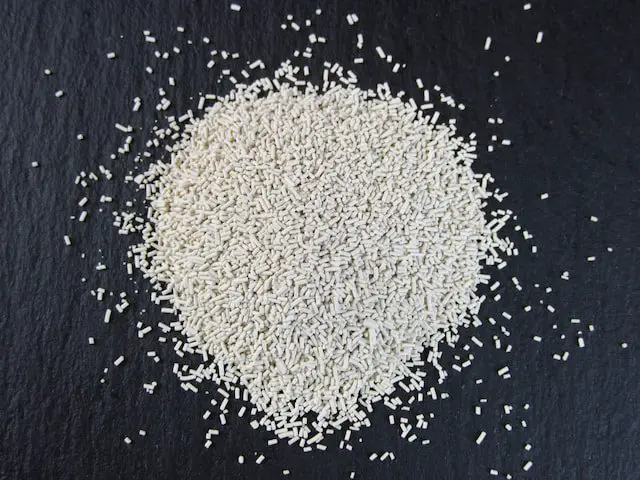Yeast is a single-celled microorganism that is commonly used in baking and brewing. It is a natural source of vitamins and minerals, and its consumption in moderation can have health benefits. However, consuming too much yeast can lead to a range of unpleasant symptoms.
Contents
Digestive Issues
When yeast is consumed in excess, it can cause digestive issues such as bloating, gas, and diarrhea. This is because yeast produces carbon dioxide as it ferments, which can cause the stomach to expand and lead to discomfort.
Additionally, yeast contains a high amount of purines, which can be broken down into uric acid. Excess uric acid can cause joint pain and inflammation, leading to conditions such as gout.
Risk Of Infection
Another potential side effect of consuming too much yeast is a yeast infection. Yeast infections occur when the natural balance of yeast and bacteria in the body is disrupted, leading to an overgrowth of yeast.
This can cause symptoms such as itching, burning, and discharge in women, and can also affect men.
Allergic Reactions
Consuming too much yeast can also lead to an allergic reaction in some people. Symptoms of a yeast allergy may include itching, hives, and difficulty breathing. In severe cases, anaphylaxis can occur, which is a life-threatening allergic reaction that requires immediate medical attention.
Might Lead To Overgrowth Of Candida
Finally, consuming too much yeast can also lead to an overgrowth of Candida, a type of yeast that lives in the human body. When the balance of Candida in the body is disrupted, it can lead to a condition known as Candida overgrowth or candidiasis.

Symptoms of candidiasis may include fatigue, brain fog, digestive issues, and skin rashes.
While yeast can be a beneficial addition to one’s diet when consumed in moderation, consuming too much yeast can have negative consequences.
Health Benefits Of Consuming Yeast In Moderation
Yeast is a single-celled microorganism that is commonly used in baking and brewing. While consuming too much yeast can lead to negative side effects, such as digestive issues and yeast infections, consuming yeast in moderation can have several health benefits.
Nutrient Source
Yeast is a rich source of vitamins and minerals. It contains high levels of B vitamins. These vitamins are essential for maintaining healthy nerves and blood cells, as well as promoting healthy skin and hair.
Yeast also contains iron, calcium, magnesium, and zinc, which are important for maintaining healthy bones and teeth, as well as promoting a healthy immune system.
Digestive Health
Consuming yeast can help promote digestive health. Yeast contains enzymes that help break down carbohydrates and protein, which can aid in digestion.
Additionally, the probiotic properties of yeast can help promote the growth of beneficial bacteria in the gut, which can help prevent digestive issues such as bloating, gas, and diarrhea.
Immune System
Yeast can also help boost the immune system. Beta-glucans, a type of fiber found in yeast, can stimulate the immune system by increasing the production of white blood cells. This can help the body fight off infections and diseases.
Blood Sugar Control
Yeast can also help regulate blood sugar levels. Studies have shown that consuming yeast can help improve insulin sensitivity, which can help lower blood sugar levels and reduce the risk of diabetes.
Athletic Performance
Yeast can also benefit athletic performance. Yeast contains high levels of protein and amino acids, which are essential for muscle growth and repair. Additionally, the beta-glucans in yeast can help improve endurance and reduce muscle damage and inflammation.

Consuming yeast in moderation can have several health benefits, including providing essential nutrients, promoting digestive health, boosting the immune system, regulating blood sugar levels, and enhancing athletic performance.
However, it is important to consume yeast in moderation and seek medical attention if any negative side effects occur.
Nutritional Content
Yeast is a single-celled microorganism that is commonly used in baking and brewing. Yeast is a rich source of nutrients, including vitamins, minerals, and protein.
The nutritional content of yeast varies depending on the type of yeast and the specific product, but here is a general breakdown of the nutritional content of nutritional yeast:
Vitamins
Nutritional yeast is an excellent source of B vitamins, including riboflavin (B2), thiamin (B1), pantothenic acid (B5), niacin (B3), biotin (B7), pyridoxine (B6), cobalamin (B12) and folic acid (B9).
These vitamins play important roles in maintaining healthy nerves and blood cells, promoting healthy skin and hair, and supporting energy metabolism.
Minerals
Nutritional yeast is also a good source of minerals, including iron, magnesium, phosphorus, potassium, and zinc. These minerals are important for maintaining healthy bones and teeth, as well as promoting a healthy immune system.
Protein
Nutritional yeast is also a source of protein, providing all nine essential amino acids that the body needs to build and repair tissues. Depending on the product, nutritional yeast can contain up to 50% protein.
Fiber
Nutritional yeast is also a good source of fiber, which can help promote digestive health and regulate blood sugar levels.
Other Nutrients
Nutritional yeast also contains other beneficial nutrients, including beta-glucans, which can boost the immune system, and nucleotides, which can aid in DNA repair and cellular growth.

Nutritional yeast is a nutrient-dense food that is rich in vitamins, minerals, protein, fiber, and other beneficial nutrients. It is a great addition to a healthy diet and can provide several health benefits when consumed in moderation.
Conclusion
Yeast can have both positive and negative effects on our health depending on how much we consume.
When consumed in moderation, yeast can provide several health benefits. It is a rich source of vitamins, minerals, protein, and fiber, making it a nutrient-dense food that can be a great addition to a healthy diet.
However, consuming too much yeast can lead to negative side effects, such as digestive issues and yeast infections. It is important to consume yeast in moderation and seek medical attention if any negative side effects occur.
Overall, incorporating yeast into your diet can be a healthy and tasty way to boost your nutrition and enhance your overall health and well-being.

